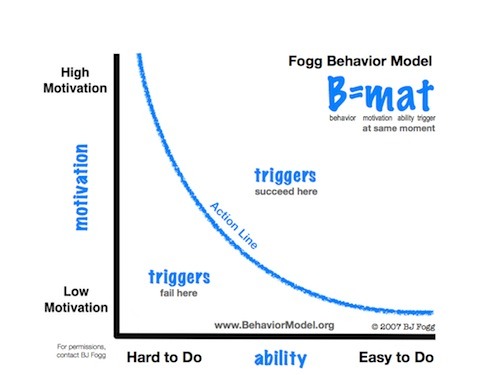
When we interviewed Dr. Stephen Schueller to learn the basics of positive psychology, he also offered insights into how we sometimes stand in the way of our happiness due to misconceptions, biases, and a lack of mindfulness.
Dr. Schueller is a professor at Northwestern University’s Feinberg School of Medicine and member of the Center for Behavioral Intervention Technologies. (This is the second part of our interview, presented in edited highlights. Read the first part here).
1. We’re too dismissive of relationships and positive emotions.
Dr. Schueller:
Positive psychology has a lot within it which is the advice our grandmother would give us: How do we live a good life? You express gratitude, you maintain optimism, you practice kindness, you focus on relationships.
We often don’t think grandmother knows best and do our own thing, and that gets us into trouble. We often pursue things like money, bigger houses, cars — material possessions — when experiences are actually much more stronger determinants of our happiness.
2. We’re bad at predicting what will make us happy.
Dr. Schueller:
There are a lot of biases that lead us to make the wrong choices. Some of the work I like to talk about is this concept called affective forecasting, which is predicting our future emotional space.
We’re really, really bad at doing this.
We overestimate the intensity and duration of the way we’ll feel. If we win the lottery, that would just change our life and we would be happy forever. Or if I was in a car accident and became a quadriplegic, then that would be terrible. When we look at the research, that’s not actually true.
There’s actually a very famous study that looked at lottery winners and people after they became quadriplegics and found that over time, the lottery winners were not really more happy and the quadriplegics were not less happy.
We think that being a lottery winner is going to solve all of our problems when it actually doesn’t. We still have to deal with family members that stress us out, we still have to deal with taxes. We think that if we become a quadriplegic, everything we enjoy in life is going to disappear, but we still have warm relationships with other people. There are still lots of things that we enjoy that we’re able to do. It doesn’t really change those aspects.
One of the reasons we fall into this prediction is because we tend to focus on one cause or certain aspects of the situation, and we forget that life is nuanced and complex and multi-causal and multidetermined.
3. We don’t look for actionable moments, the right timing to harness motivation.
Dr. Schueller on lessons from effectively timing positive psychology interventions, which are activities or skills that increase happiness:
When someone’s feeling the most down, it’s not when they’re really ready to do … things. When I write a paper and get it accepted, that’s usually when I have the most energy to want to start working on another paper and get my ideas out there more. When I get a paper rejected, it’s not like, oh now I feel so energized, let me go do this.
In some ways, positive psychology is about trying to figure out how to build on the successes people have in such ways that will help them later when they’re down. If I learn the skills and strategies now, if I work on these patterns and behaviors, then when a time of stress comes or when something bad comes, I’ll build up the resilience to deal with it.
4. We don’t sufficiently consider our future.
Dr. Schueller:
Dan Gilbert has a book called Stumbling on Happiness which is really good and he writes, “The human being is the only animal that thinks about the future.” We’re able to prospect, to think about what’s going to come, and make mental simulations, and that’s part of what makes us human. Part of what positive psychology might be about is making us better prospectors for the future.
Happiness is very much about future thinking — that we’re pulled by our futures and moving towards something. Our ability to prospect about the future effectively is the way to advance ourselves as human beings.
5. We don’t harness our wins and self-knowledge to sustain happiness.
Dr. Schueller on lessons from researching how to make positive behavior sustainable:
If we have a very complicated interaction, it’s unlikely that somebody’s going to keep it up. But if there’s a very simple interaction, then it’s more likely to be sustained over time. There’s the Fogg Behavior Model [where you lower the difficulty of ability in order to increase motivation].
You scaffold behavior such that you’re able to do things. What I think about is scaffolding small wins in order to build someone up to these long-term goals and giving them the skills and the mastery they need to be able to do that. It’s about honing in and finding the thing that is consistent with your character, your strengths, and your values [that’s] going to be the most self-sustaining choices.
Happiness is a journey, and people have to be willing to approach it as a journey and be mindful in the steps that they’re taking and of the things they’re doing, so they’re not just going through life bumbling around but making progress towards the things that they want.
Images: Flickr member Daniel (smiling girl); Fogg Behavior Model, used with permission from BJ Fogg.

